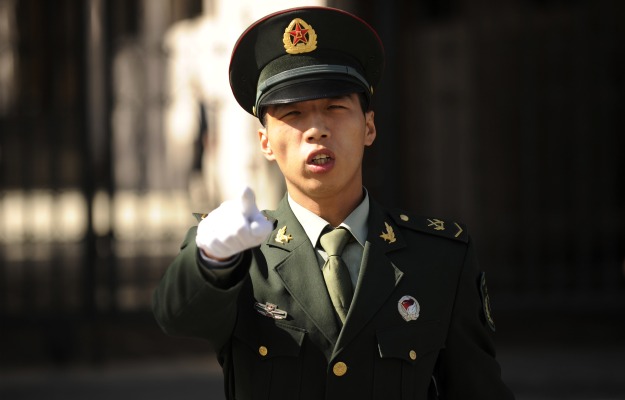|
|
【原文标题】The End of the 'Peaceful Rise'?
【中文标题】“和平崛起”的终结?
【登载媒体】Foreign Policy
【来源地址】http://www.foreignpolicy.com/articles/2010/11/29/the_end_of_the_peaceful_rise
【译 者】双籽宣言
【翻译方式】人工翻译
【声 明】 本翻译供Anti-CNN使用,未经AC或译者许可,不得转载。
【译 文】

在所有新闻头条中,还没有清晰地内容可以指明中国将会在下一个关键的十年之中成为怎样的一种全球力量。但是,如果说国际社会还处在关于中国21世纪轨迹的疑惑中,那么很有可能的是,中国自身也没有对自己的情况形成一定共识。
在改革开放的前几年中,中国在邓小平潜移默化地推进下加入了更广范围的国际组织。拥有“中国市场经济理论之父”之称的首要政策顾问、中国经济学家吴敬琏就公开赞成全球经济下的市场化改革和整合。与此同时,邓小平也保留了一些早期的策略,如“四化”(农业、工业、国防和科学技术),希望能在21世纪早期,将中国转化成一个可以自力更生的国家。在80年代领导中国海军的上将刘华清,曾经希冀能在21世纪中叶能与美国有同等的海军力量。
邓小平新旧政策的交融使得在政治与军事上保持低调的一方力量出现。在邓小平的指导下,中国的外交政策制定为“韬光养晦,有所作为”。
然而,在过去的十年中,邓小平的思想开始逐渐令人感到恐慌。随着中国经济的持续增长,以及不断向海外扩展,已经深入到东南亚、拉美、非洲,邓小平的名言开始名不副实。对于外界已经开始设想中国对西方造成威胁,共产党高级官员郑必坚试图去解释这种日益强大的情况及对世界各地的影响。“和平崛起”的概念在2003年至2005年的外交事务文书中首次使用,郑必坚认为,中国的崛起不会像其他国家那样,以对他国的剥削为基础。有些人还认为,中国的崛起将有利于中国人民和世界其他国家。
中国的很多高层领导人都支持这种“和平崛起”说法。但是对其的争议也是有益的:一些中国学者担心,“崛起”这个词对于外国人太具有挑衅性,而另一些学者则不喜欢“和平”这个词,以防万一有侵略性的需要,比如,当台湾突然宣布独立时。清华大学教授阎学通认为,“所有会阻止中国崛起的和平战略都必须被排除在外。”在官方的文章中,“和平崛起”很快演变成了一个更加暧昧的词“和平发展”。
今天,在没有中国政府的明确指导下,一场声势浩大的辩论在中国各地的知识分子中展开。有些人显然愿意看到中国作为一个全球大国。例如,在金融危机中,中国央行行长周小川建议,不再把美元作为储备货币的时机已经成熟。国际关系专家复旦大学沈丁立教授公开宣扬中国应建立军事基地保护其海外利益的权利。但其他中国官员和学者只是很清楚这样大胆宣称的危险性。“我认为,在全球政治中,中国不会成为另一个美国,而且即使它想,它也曾成为不了,”学者王缉思认为。
这场关于中国如何在世界上促进其利益的辩论并不是在简单的抓住时机或是坚持到底的选择之间。一些中国官员已呼吁本国政府应承担更多的国际责任。例如,国务院总理温家宝在4月发言时强调,中国会加强其在教育、医疗保健等领域的贡献,减少债务,因为它是“国际社会和中国自身利益的共同诉求”。记者王迪曾写文章,表示在国外经营的中国企业应多考虑社会责任,唯恐被标记成为只会“傲慢的资本扩张”。
也许,正如现在一些中国学者所认为的那样,最大的挑战并不是任何外部的威胁,而是不断变化的中国政治文化。“三十年的改革促进了中国财富的迅速增加,这反过来也使中华民族变得傲慢了”,中国社会科学院学者叶海林在一篇批评性文章中写道,“中国人已无法再忍受批评”。
这场辩论会对中国的未来有怎样的影响现在还没有定论。但是,也许是最重要的一点是,这毕竟发生了——不仅仅是在封闭的中南海中,还在所有中国人和世界其他国家面前。
原文:
For all the breathless headlines, there is no real clarity as to what kind of global power China will become over the next critical decade. But if the international community is in the dark about China's 21st-century trajectory, it is likely because there is no real consensus among the Chinese themselves.
Throughout the first decades of the reform era, China under Deng Xiaoping quietly and gradually sought to join a wide range of international organizations and regimes. Top policy advisors such as economist Wu Jinglian -- who eventually earned the moniker "Mr. Market" -- openly favored market reform and integration with the global economy. At the same time, Deng retained earlier elements of Chinese strategy, such as the "Four Modernizations" (agriculture, industry, national defense, and science and technology) aimed at transforming China into a self-reliant power by the early 21st century; and military strategists like Adm. Liu Huaqing, who led the Chinese navy during the 1980s, were laying out a vision for a seafaring force that would be the equal of the United States by the mid-21st century.
The result of Deng's blending of old and new was the emergence of a global power that nonetheless maintained a low political and military profile. Chinese foreign policy hewed closely to one of Deng's guiding principles -- "hide brightness and cherish obscurity."
Yet the consensus of the Deng era began to fray over the past decade. As China's economy continued to grow and the country's presence overseas expanded deep into Southeast Asia, Latin America, and Africa, Deng's dictum became out of sync with reality. With some outsiders beginning to envision a newly empowered China posing a threat to the West, senior Communist Party official Zheng Bijian sought to explain China's growing power and influence to the rest of the world. Arriving at the notion of "peaceful rise," which he started using in 2003 and popularized in a 2005 Foreign Affairs article, Zheng argued that unlike other former great powers, China's rise would not be based on the exploitation of others. Rather, the theory -- some might say marketing slogan -- stressed that China's rise would benefit the Chinese people and the rest of the world.
Most of China's top leaders quickly came out in support of the motto. But the debate over it was instructive: Some Chinese scholars worried that the word "rise" was too provocative for foreigners, while others didn't like the word "peace," arguing it wouldn't allow for China to be aggressive if the need arose, for instance should Taiwan suddenly declare independence. As Yan Xuetong, a professor at Tsinghua University, argued at the time, "All peace strategies that would prevent China's rise must be excluded." In official circles, the term soon morphed into the more soporific "peaceful development."
Today, without Beijing's clear guidance, a great debate has arisen among China's intelligentsia over the country's role in the world. Some are clearly ready to see China assert itself as a global power. At the height of the financial crisis, for example, China's central bank governor Zhou Xiaochuan suggested the time was ripe for the world to move away from the dollar as the reserve currency. International relations scholars such as Fudan University's Shen Dingli openly tout China's right to establish military bases to protect its overseas interests. But other Chinese officials and thinkers just as clearly sense danger in such boldness. "I don't think China should become another U.S. in global politics, and it couldn't even if it wanted to," scholar Wang Jisi has opined.
This debate about how China can advance its interests in the world is not simply a choice between seizing the moment and staying the course. Some Chinese officials have called on their government to shoulder more international responsibilities. Premier Wen Jiabao, for example, said in an April speech that China would step up its contributions to international efforts in such areas as education, medical care, and debt reduction because it is "the aspiration of the international community and in China's own interest, too." Others, such as reporter Wang Di, have written of the need for large Chinese companies operating abroad to consider corporate social responsibility, lest they be labeled forces of "arrogant capital expansion."
Perhaps the most profound challenge, as several Chinese thinkers now articulate, is not any external threat, but rather the changing political culture inside China. "Three decades of reform have led to a rapid increase of wealth in China, and this in turn has also made the Chinese people arrogant," Ye Hailin, research fellow with the Chinese Academy of Social Sciences, wrote in a stinging critique of current Chinese sensibilities. "The Chinese people are no longer tolerant of criticisms."
How this debate will shape China's future remains an open question. But perhaps the most important point is that it is taking place at all -- not simply behind the famously closed doors of Zhongnanhai, but before the Chinese people and the rest of the world |
评分
-
1
查看全部评分
-
|